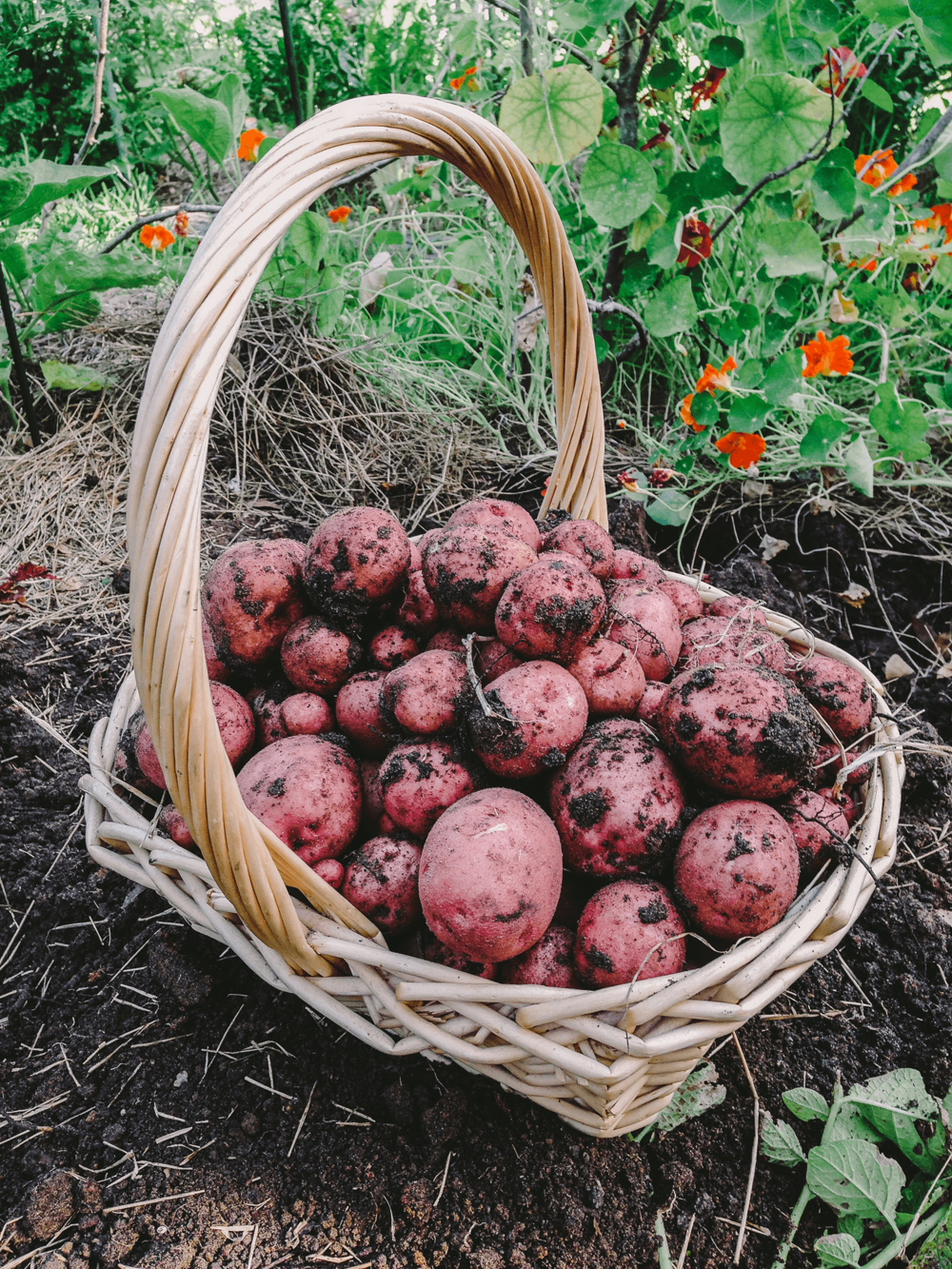Potatoes are a versatile and beloved vegetable that can be grown in various garden settings, from spacious backyard plots to compact urban containers. While they can thrive on their own, planting them alongside compatible companion plants can enhance their growth, health, and overall productivity. In this article, we will explore the concept of potato companion planting and discover the perfect partners to maximize the potential of your potato patch.
When it comes to potato planting, selecting the right companion plants is crucial for optimizing their growth and yield. Companion planting is a time-honored gardening technique that utilizes the natural symbiotic relationships between different plant species. By strategically pairing compatible plants, we can create a harmonious ecosystem that benefits all involved.
One company that understands the importance of organic gardening and provides excellent products to support it is Kellogg Garden. With their extensive range of Organics and G&B Organics soils, gardeners can ensure their companion plants receive the optimal growing conditions for thriving alongside potatoes. So, let’s dive into the world of potato companion plants and uncover the winning combinations that will take your potato-growing experience to new heights.
Companion Plants for Potatoes
When it comes to potato planting, choosing the right companion plants can greatly enhance the growth and productivity of your potato crop. By strategically selecting plants that thrive alongside potatoes, you can create a beneficial ecosystem that improves soil quality, deters pests, and increases overall yields. In this article, we will explore some of the best companion plants for potatoes to help you cultivate a successful and thriving garden.
One of the top potato companion plants is the marigold. Known for their vibrant blooms, marigolds not only add a splash of color to your garden but also serve as a natural pest deterrent. Their strong scent is known to repel harmful insects like potato beetles, nematodes, and aphids. Additionally, marigolds have a symbiotic relationship with potatoes by attracting beneficial insects such as ladybugs, which feed on pests that can cause damage to your potato crop.
Another excellent companion plant for potatoes is the bush bean. These legumes contribute to potato planting by enriching the soil with nitrogen. As legumes, bush beans have the unique ability to convert nitrogen from the air into a form that is readily available for plants to use. This natural nitrogen fixation process helps to ensure that your potato plants have an ample supply of this essential nutrient. Moreover, bush beans have shallow root systems, making them compatible with potatoes as they do not compete for nutrients and water in the same soil layers.
Lastly, consider incorporating the fragrant herb, thyme, into your potato companion planting scheme. Thyme is a hardy perennial that not only adds flavor to your culinary pursuits but also provides multiple benefits to your potato crop. This herb acts as a natural repellent for pests like cabbage worms and spider mites. Thyme also improves soil drainage due to its root structure, preventing waterlogging that could adversely affect potato growth. Furthermore, the aromatic compounds released by thyme can attract bees and other pollinators beneficial to both potatoes and surrounding plants.
By selecting the right companion plants for your potatoes, you can create a diverse and harmonious garden that maximizes productivity and minimizes issues with pests and diseases. Consider including marigolds, bush beans, and thyme in your potato planting beds to reap the numerous benefits they offer. Remember, a well thought-out companion planting scheme is the key to successful potato cultivation.
Tips for Successful Potato Planting
Choose the Right Potato Variety: When it comes to successful potato planting, selecting the right variety is crucial. There are many different types of potatoes available, each with its own characteristics. Some are better suited for baking, while others are perfect for mashing or frying. Make sure to choose a potato variety that suits your culinary preferences and growing conditions.
Prepare the Soil: Before planting your potatoes, it is essential to prepare the soil properly. Potatoes thrive in loose, well-draining soil. Start by removing any weeds or existing vegetation from the planting area. Then, loosen the soil using a garden fork or tiller, ensuring that it is light and crumbly.
Consider Companion Plants: Companion planting is a valuable technique in organic gardening, and it can greatly benefit your potato plants. Certain plants, when grown alongside potatoes, can help deter pests, improve soil health, and enhance overall plant growth. Some excellent companion plants for potatoes include marigolds, horseradish, and beans. By interplanting these crops, you can create a thriving ecosystem that supports the health and productivity of your potato plants.
Remember, successful potato planting is not just about the initial stages. Regular watering, proper fertilization, and timely harvesting are equally important in ensuring a bountiful potato harvest. By following these tips, you can set your potato plants up for success and enjoy a flavorful harvest in due time.
Kellogg Garden: Organic Soil Solutions
Kellogg Garden is a renowned company that specializes in providing high-quality organic soil solutions for all your gardening needs. Their wide range of products caters to the specific requirements of various plants, including potatoes.
When it comes to potato planting, choosing the right soil is crucial for healthy growth and a bountiful harvest. Kellogg Garden offers a selection of premium organic soils that are perfect for nurturing your potato plants. These soils are carefully formulated to provide the essential nutrients and moisture retention necessary for optimal potato growth.
One of the top choices for potato companion plants is G&B Organics soil, a product offered by Kellogg Garden. G&B Organics soil is enriched with organic compost, creating a nutrient-rich environment that promotes strong root development and overall plant health. This specially formulated soil blend also enhances the soil structure, allowing for better water drainage and aeration, essential for preventing issues like root rot.
Kellogg Garden’s commitment to organic gardening ensures that their soils are free from harmful chemicals and pesticides. This not only benefits the environment but also contributes to the production of healthier and more flavorful potatoes.
Organic Soil

In conclusion, when it comes to potato companion plants, Kellogg Garden’s range of organic soil solutions, including the G&B Organics soil, provides the ideal foundation for successful potato cultivation. By choosing their products, you can be confident that you are providing your potatoes with the best possible growing conditions for a truly abundant harvest.






Recent Comments